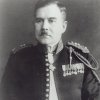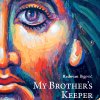Континент српске културе
Срби у Америци и њихова периодика наслов је најновије књиге Кринке Видаковић Петров, објављене недавно у издању Института за књижевност и уметност из Београда. Реч је о првом тому студије која, према речима ауторке, познати историчар и критичар књижевности, има за циљ да пружи преглед српске периодике у раздобљу 1893–1941, с нагласком на године пре Првог светског рата. Књига „Срби у Америци и њихова периодика” врви драгоценим подацима о покретачима листова, њиховим уредницима и о условима, како каже наша саговорница, у којима се српска периодика у Америци развијала.
Колико је обрађивана тема српске периодике у исељеништву, да ли су јој више пажње посвећивали истраживачи из матице или Америке?
У истраживању периодичких публикација, новина, часописа, годишњака, у Сједињеним Америчким Државама био је учињен први корак израдом библиографија, често непотпуних, посебно када је у питању рана периодика, јер је она већини истраживача била и остала делимично или сасвим недоступна. Домаћи библиографи, Вук Драговић у „Српској штампи између два рата 1915–1945 (1956)” и Милица Кисић и Бранка Булатовић у „Српској штампи 1768–1995 (1996)” обрађивали су је у оквиру српске периодике уопште, док су амерички библиографи Роберт П. Гаковић и Милан Радовић у „Serbs in the United States and Canada. A Comprehensive Bibliography (1976)” то учинили у оквиру опште библиографије Срба у Северној Америци. Суштински је, ипак, остао неистражен тај значајни „континент” српске културе у дијаспори. Прича о српској периодици у Америци почиње у Сан Франциску, где је 1880. основана прва изразито српска организација – Српско-црногорско литерарно и добротворно друштво. Оно је 1883. покренуло први српски лист у Америци – „Слободу”. Од тада до данас излазило је више од сто српских периодичких публикација, које пружају обиље грађе за проучавање свих области историје српског исељеништва у Америци.
.



